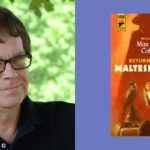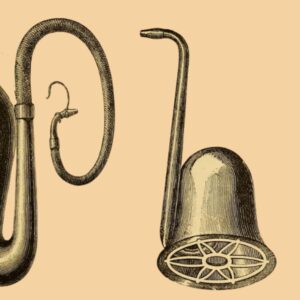
Five Books Making News This Week: Memoir Queens and Ping-Pong Losers
Also: Poets, Puppies, and Prize Winners
A U.S. Poet Laureate offers a stirring new collection, a revered short story author’s new book compiles 46 stories written over a half century, the author of the Los Angeles Times Art Seidenbaum Award for First Fiction is back with an absurdist novel about an eccentric named Gustavo “Highway” Sánchez who is auctioning off his teeth, a celebrated memoirist publishes a primer on the art that rings with her own distinctive voice, and more attention to Man Booker shortlisted Marlon James.
 Juan Felipe Herrera, Notes on the Assemblage
Juan Felipe Herrera, Notes on the Assemblage
Herrera kicks off his term as the first Mexican-American poet laureate with a rousing new collection. He read from it (and introduced the third-grade teacher who changed his life) in a triumphant inaugural reading at the Library of Congress earlier this month.
Rigoberto Gonzalez (Los Angeles Review of Books) summarizes the poet’s cultural contributions, including five books, in a 3,000-word essay that concludes, “As a poet who makes impassioned connections from his Chicano subjectivity to his role as citizen of the Américas to his participation as a global citizen, Herrera has written an exceptional body of work, a true testament to his unwavering convictions and respect for the power of language. He’s a consummate artist and activist who will bring a different energy and perspective to his duties as Poet Laureate of the United States, and that’s one more reason to celebrate this timely appointment. But what came before that appointment, and what will stand long after it has been completed, is Herrera’s expansive vision, his remarkable voice, and those spirited flourishes that make him an original in American letters.”
Elizabeth Lund (Washington Post) describes Notes on the Assemblage as “a splendid introduction to the expansive work;” David Ulin (Los Angeles Times) calls it “generous, unexpected, playful and pointed, reminding us of our shared humanity.”
“Juan Felipe Herrera is at the top of his game,” is NPR’s Craig Morgan Teicher’s assessment. “A writer who is engaged with the most pressing political and social issues of our moment, he believes (judging from his poems) in all kinds of expression, not just the kind that comes most naturally to him.” Teicher notes that “Poem by Poem,” the book’s closing elegy to the victims of the South Carolina church shooting in June, is “a very public entreaty to Americans to do good, however they can, on behalf of their fellow-citizens”:
you have a poem to offer
it is made of action—you must
search for it run
outside and give your life to it
when you find it walk it
back—blow upon it
carry it taller than the city where you live
“Isn’t that the perfect note for the new national poet to sound at the outset of his term?” Teicher concludes; “he’s ready to carry his poems tall on our behalf, and for us to join him.”
 Joy Williams, The Visiting Privilege
Joy Williams, The Visiting Privilege
Glowing reviews greeted the new 500-page volume from writer’s writer Joy Williams, which includes most of her first four collections plus 13 new stories, all reflecting a perspective clear from this snippet of Williams’s speech reported in her Paris Review interview: “We are American writers, absorbing the American experience. We must absorb its heat, the recklessness and ruthlessness, the grotesqueries and cruelties. We must reflect the sprawl and smallness of America, its greedy optimism and dangerous sentimentality. And we must write with a pen—in Mark Twain’s phrase—warmed up in hell.”
Deb Olin Unferth (Bookforum) makes clear why we should read Williams: “A real live kook, she is widely admired by writers with even the faintest interest in the avant-garde, and her books have been finalists for major prizes, including the National Book Award and the Pulitzer Prize, because she is a fiery writer with a sharp humor and a dark energy and because her sentences are weird, funny, and full of emotion… She writes about the enormous, inconvenient human capacity for love, the weighty responsibility of it, the loneliness of it.”
Ben Marcus (New York Times Book Review) is heartened by Williams’s work. “…if Williams herself keeps writing fiction—ruthless, hilarious work that holds our human folly to the fire—the novel and the short story won’t perish anytime soon. In her review last year, in these pages, of Denis Johnson’s novel The Laughing Monsters, Williams offered a chilling aside that is hard not to read as a credo for her own fiction: ‘Life is ludicrous and full of cruel and selfish distractions. Honor is elusive and many find the copious ingestion of drugs necessary. Our ignorance is infinite and our sorrows fearful. We have made an unutterable waste of this world, and our passage through it is bitter and unheroic. Still, the horror can at times be illuminating, and it is necessary that the impossible be addressed.’ The question of how this horror could ever be illuminating is answered with immaculate artistry by The Visiting Privilege… one of the most fearless, abyss-embracing literary projects our literature has seen.”
Laura Collins-Hughes (Boston Globe) points out that her “darkness is dappled with light, her lightness with dark.” One of the new stories, she adds, the “Kafkaesque jailhouse comedy, ‘The Mission,’ may make you want to clutch this volume to your chest—an impulse to be resisted, only because it would get in the way of reading. ‘I had been drinking Manhattans all afternoon for reasons that remain obscure,’ our narrator reports, by way of explaining her DUI.”
Dwight Garner (New York Times) deciphers the power of the stories: “Piling up lines and details can make her stories sound brittle, random, half-felt. They are not. This is a writer who sees deeply into the hearts of things. All the world’s woe pools below her sentences. Ms. Williams’s stories transmit a deep feeling for life’s transience, a sense that everything is provisional and thus tragicomic. Her people are not much on maintenance, moral or otherwise. They have no backup systems. Once upon a time, they might have had tennis lessons and orthodontia, but their own children probably will not.”
“Williams is unrivaled in her depiction of a profound, inarticulate, almost painterly loneliness,” writes Lisa Zeidner (Washington Post). “Doesn’t matter whether the characters are jauntily off joyriding or stuck in hallways, in wheelchairs, in dementia wards.”
 Valeria Luiselli, The Story of My Teeth
Valeria Luiselli, The Story of My Teeth
Heller McAlpin (NPR) rejoices in this “playful, philosophical funhouse of a read that demonstrates that not only isn’t experimental fiction dead, it needn’t be deadly, either.” Luiselli’s “elastic mind,” she adds, “comfortably stretches to wrap itself around molars, Montaigne, fortune cookies and various theories of meaning.”
Carolyn Kellogg (Los Angeles Times) loves Luiselli’s new book: “The Story of My Teeth is a destabilizing read, a puzzle of a novel that at first seems explicable enough. Each successive chapter reveals new aspects and dimensions to the tale, giving the story new shapes and forms. When the book closes with a description that seems to fit all the parts in place, it’s satisfying yet appropriately mutable for a work that’s spent so much time playing with truth and fiction. And it’s proof that Valeria Luiselli is one of the most exciting new writers working today.”
“It introduces such an irrepressible voice, in the person of our narrator Gustavo Sánchez Sánchez, the self-described ‘best auctioneer in the world,’ that you don’t have to be a surrealist to appreciate this book,” writes Amanda Katz (Slate). “You can just marvel that what Luiselli calls a ‘collective “novel-essay” about the production of value and meaning in contemporary art and literature also happens to be a genuinely delightful read.”
Jim Krusoe (New York Times Book Review) calls the novel “playful, attentive and very smart without being for a minute pretentious. It’s Walter Benjamin without tears—sunnier, more casual and more nimble. Luiselli is an exciting writer to watch, not only for this book, but also for the fresh approach she brings to fiction, one that invites participation and reaction, even skepticism—a living, breathing map.”
Amy Gentry (Chicago Tribune) is taken with Luiselli’s name dropping of “writers and artists from absurdist and surrealist global traditions, including dozens of Mexican writers difficult or impossible to find in English translation.” The final chapter, she adds, “penned by translator Christina MacSweeney, is a playful chronology mapping out the events of Gustavo’s life alongside those of the real names mentioned in the text. Next to birth, death and publication dates, the timeline notes random anniversaries (‘650th anniversary of the appointment of Petrarch as the first poet laureate since the classical era’), the date one writer learned to ride a bicycle and Luiselli’s own thoughts at the age of 15. Linear at first glance, it soon opens out into a world of stories, like a mouth with one tooth from every artist in the world.”
Joshua James Amberson (Portland Mercury) compares the early section of the book to Richard Brautigan’s work. “Luiselli’s greatest achievement here is that she’s made something so undeniably weird relatively accessible. It’s clear and entertaining even as it blurs the lines between fiction, history, and social commentary.”
 Mary Karr, The Art of the Memoir
Mary Karr, The Art of the Memoir
Karr is famous for her memoir of a tough upbringing The Liars’ Club and Cherry, and her recovery memoir Lit (New York magazine calls her “The Queen of the Memoir”). Her new DIY book has its fans, as well.
Laura Miller (Slate) argues with Karr’s assertion that memoir has entered its heyday, but she honors Karr’s own rare gifts: “Voice, the quality that floods a great memoirist’s most mundane material with radiant charm, is Karr’s superpower. Read her for five pages and suddenly you want to know what she thinks about everything. You want to be her best friend, if she’ll have you. Even this rare quality, however, perhaps the greatest advantage of the best memoirists, has been co-opted by other media. We live in an age where it’s possible to be likable for a living… Except that Karr really is an artist. The Art of Memoir attests to how hard she works at getting her words just right and how deeply she understands the way great writing works. Her close readings of authors ranging from Michael Herr and Hilary Mantel to Crews and Frank Conroy make the book well worth its cover price to aspiring writers and careful readers of all genres.”
Janet Maslin (New York Times) also addresses the allure of the author’s voice. “Ms. Karr acknowledges that this book began with the teaching syllabus she uses at Syracuse University, where merely becoming one of her students is a major achievement. She has fleshed it out with analyses of some of her favorite memoirists’ work, but she can’t help being more interesting than her lesson plans. The best parts of this book are those that veer off course and find her writing about herself again.”
“This useful, wise, mouthy, blunt, profane and profound book deals with all manner of problems vexing the would-be memoirist,” writes Laurie Hertzel (Minneapolis Star-Tribune).
“Karr argues for fighting as hard as humanly possible for veracity—both the surface truth and the deeper truth beneath it,” writes Dawn Raffel (San Francisco Chronicle). “None of this comes readily to her. A recurrent theme of the book is the importance of multiple revisions, by which she seems to mean re-vision. It’s one (necessary) thing to keep writing toward a more felicitous or engaging sentence, another to accept the intellectual and spiritual challenge to re-see the things we want to let our eyes slide past.”
Valerie Sayers (Washington Post) considers The Art of the Memoir a “hodgepodge of a book,” adding, “Karr’s own practice makes her a good model of the principled writer. She notifies those she loves in advance of writing, lets them read the finished manuscript, examines her literary conscience and acknowledges different recollections without changing her own. She changes the names of ‘the innocent’ and (even better) lets them pick their own pseudonyms.”
 Marlon James, A History of Seven Killings
Marlon James, A History of Seven Killings
Marlon James’s spot as the first Jamaican on the Man Booker shortlist was subtext as he made several appearances at the tenth annual Brooklyn Book Festival, ending the day by getting creamed at ping-pong by Jonathan Lethem (Geoff Dyer won the literary ping-pong final match, which pitted a Brooklyn Book Fest team headed by Johnny Temple against Paul Holdengraber’s New York Public Library team).
In the wake of James’s Man Booker nomination, Katharine Schwab (The Atlantic) takes a fresh look at A History of Seven Killings, describing it as “a dizzying epic, which encompasses Jamaican politics and American Cold-War policy, not to mention poverty, gang warfare, race, class, and international trade in crack cocaine. Marley, who is referred to only as the Singer throughout the book, serves as a somewhat paradoxical mythic force: He is the peace-preaching voice of the disenfranchised and at the same time the symbol of complicity with what the Rastafarians call ‘Babylon,’ the corrupt system of power that includes politically motivated violence, American influence, and police brutality.”
Adam Johnson (The Book Report) says A Brief History of Seven Killings is “really compelling reading” with characters who are “rich and warm and funny,” and irresistible: “I believe readers instantly care about characters who are trapped.”
Lori Selke selects Prince’s 1992 “7” as the song that wedged itself into her head while reading James’s novel. “One great thing about apocalyptic visions is that they can be interpreted in any direction you like,” she writes. “The other great thing about apocalyptic visions is that after the cataclysms, we are promised a new and better world. After the plagues and the rivers of blood, ‘there will be a new city with streets of gold,’ Heaven on Earth, for all eternity. For all the violence and horror of this world—detailed without quarter in Seven Killings—the promise of something better, a permanent revolution, can sustain us.”
Jane Ciabattari
Jane Ciabattari, author of the short story collection Stealing the Fire, is a former National Book Critics Circle president (and current NBCC vice president/events), and a member of the Writers Grotto. Her reviews, interviews and cultural criticism have appeared in NPR, BBC Culture, the New York Times Book Review, the Guardian, Bookforum, Paris Review, the Washington Post, Boston Globe, and the Los Angeles Times, among other publications.


















